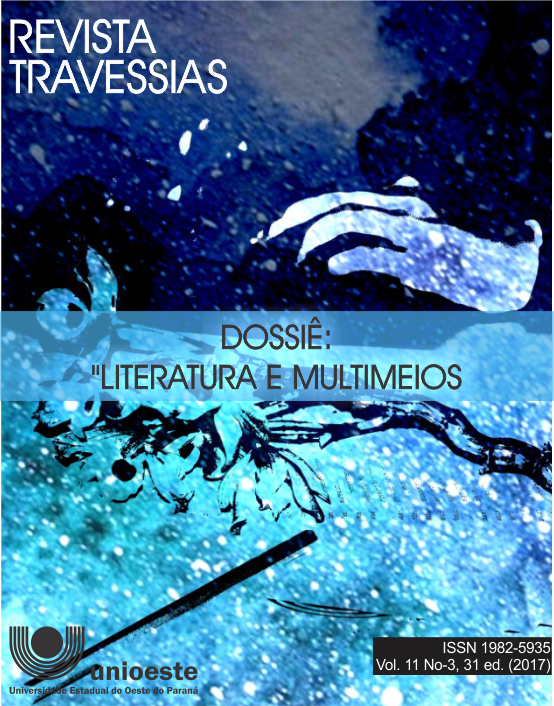A educação inclusiva: saberes em construção
Palavras-chave:
Inclusão. Ambiente Escolar. Formação de Professores. Deficiências.Resumo
o objetivo deste artigo é propor saberes sobre inclusão, rememorar condições históricas, discutindo e aflorando a proposta atual. Se outrora pareciam imutáveis, atualmente percebe-se a volatilidade de conceitos, posições, nomenclaturas e ações de acessibilidade, as condições de estudo e promoção da educação inclusiva, ainda que, 12 anos após a implantação da proposta brasileira de Educação Inclusiva no Brasil, pode-seperceber que os avanços, apesar de serem vastos, são insuficientes para realmente garantir as condições de acesso e permanência de todos os estudantes, ainda mais daqueles que precisam de serviços e recursos que permitam condições de efetivo crescimento acadêmico e social. Na segunda sessão deste artigo, propõem-se algumas atividades práticas que podem ser desenvolvidas em sala de aula, com o intuito de incluir todos e prover situações de ensino e aprendizagem significativas e condizentes com todas as necessidades variadas de aprendizado.
Downloads
Referências
AMIRALIAN, M. L. T. M. Psicologia do Excepcional. v. 8. São Paulo: EPU, 1986.
BIANCHETTI, L. Aspectos históricos da apreensão e da educação dos considerados deficientes. Revista Brasileira de Educação Especial, v. 2, n. 3. 1995.
BRASIL. Lei nº 9394 de 20 de dezembro de 1996 que estabelece as diretrizes e bases da educação nacional. Brasília: Presidência da República, 1996.
CADER-NASCIMENTO, F. A. A. A.; COSTA, M. P. R. Mediação pedagógica no processo de desenvolvimento da comunicação em crianças surdocegas. Temas em Psicologia da SBP, n. 11, v. 2, p. 85-96. [s.d.]. 2003.
CARVALHO, A. R.; ROCHA, J. V.; SILVA, V. L. R. Pessoa com deficiência na história: modelos de tratamento e compreensão. In: Programa Institucional de Ações Relativas às pessoas com Necessidades Especiais - PEE (Org.). Pessoa com deficiência na sociedade: aspectos teóricos e práticos. Cascavel: EDUNIOESTE, 2006.
GLAT, R. Questões Atuais em Educação Especial. A Integração Social dos Portadores de Deficiências. v. 1, 2. ed. Rio De Janeiro: Sette Letras, 1998. 54 p.
MANTOAN, M. T. E., GAIO, R; MENEGHETTI, R. G. K. (Orgs.). Caminhos Pedagógicos da Educação Especial. Petrópolis, RJ: Vozes, 2004. 80-93 p.
MANTOAN, M. T. E. Inclusão é o privilégio de conviver com as diferenças. Nova Escola, São Paulo, Edição 182, p. 24-26, maio. 2005.
MANTOAN, M. T. E. Caminhos pedagógicos da inclusão. Disponível em: <http://www.educaçãoonline.pro.br./art>. Acesso em: 21 set. 2015.
MANZINI, E. Integração de alunos com deficiências: perspectivas e prática pedagógica. Marília: Unesp. FFC, 1999.
MAZZOTA, M. J. S. Educação Especial no Brasil: História e Políticas Públicas. 3.ed. SP: Cortez, 2001.p. 27-28.
SASSAKI, R. K. Inclusão: construindo uma sociedade para todos.Rio de Janeiro: WVA, 1997.
RAIÇA, M. T. B. de O. A Educação Especial do Deficiente Mental. São Paulo: EPU, 1999.
TENOR, A. C. A inclusão do aluno surdo no ensino regular na perspectiva de professores da rede municipal de ensino de Botucatu. São Paulo, 2008. Disponível em: . Acesso em: 20 set. 2012.
VIGOSTKI, L. S. Fundamentos de defectologia. In: Obras completas. Tomo V. Havana: Editorial Pueblo y educación, 1997. p.74-87.
Downloads
Publicado
Como Citar
Edição
Seção
Licença
Aviso de Direito Autoral Creative Commons
Política para Periódicos de Acesso Livre
Autores que publicam nesta revista concordam com os seguintes termos:
1. Autores mantêm os direitos autorais e concedem à revista o direito de primeira publicação, com o trabalho simultaneamente licenciado sob a Licença Creative Commons Attribution que permite o compartilhamento do trabalho com reconhecimento da autoria e publicação inicial nesta revista.
2. Autores têm autorização para assumir contratos adicionais separadamente, para distribuição não-exclusiva da versão do trabalho publicada nesta revista (ex.: publicar em repositório institucional ou como capítulo de livro), com reconhecimento de autoria e publicação inicial nesta revista.
3. Autores têm permissão e são estimulados a publicar e distribuir seu trabalho online (ex.: em repositórios institucionais ou na sua página pessoal) a qualquer ponto antes ou durante o processo editorial, já que isso pode gerar alterações produtivas, bem como aumentar o impacto e a citação do trabalho publicado (Veja O Efeito do Acesso Livre).
Licença Creative Commons
Esta obra está licenciada com uma Licença Creative Commons Atribuição-NãoComercial-CompartilhaIgual 4.0 Internacional, o que permite compartilhar, copiar, distribuir, exibir, reproduzir, a totalidade ou partes desde que não tenha objetivo comercial e sejam citados os autores e a fonte.



